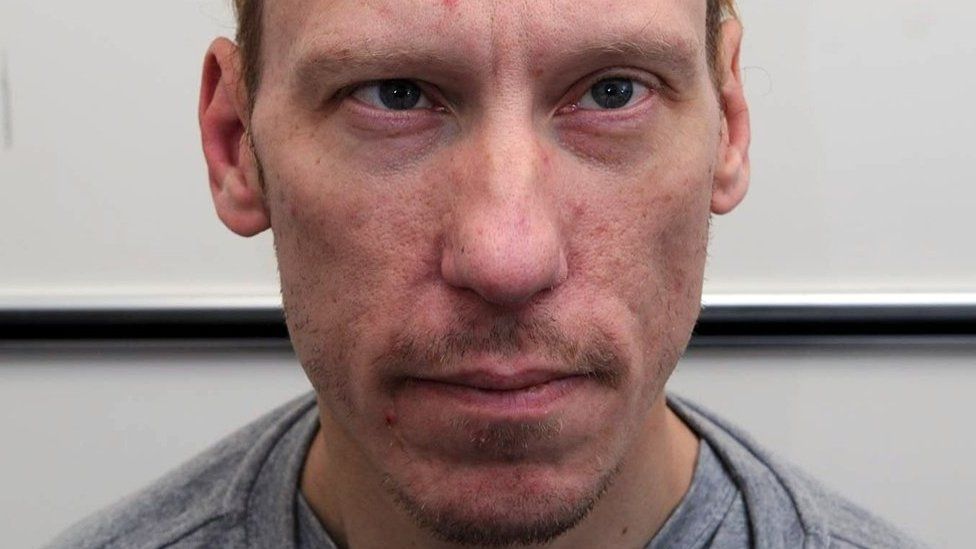By David Young-
The Metropolitan Police may be failing to identify serial killers because it is not properly investigating unexpected deaths, a watchdog says.
It had not learned from a “calamitous litany of failures” in the case of Stephen Port almost a decade ago and “history could repeat itself”, the inspector of constabulary warned.
The Metropolitan Police has come under scrutiny once again following the revelation that they may have failed to stop serial killers like Stephen Port.
The case of Stephen Port, who was convicted in 2016 for the murder of four gay men, has been a topic of discussion for several years.
Stephen Port was a man who was known to the police long before he was finally apprehended. He was first arrested in 2012 for drugging and raping a man but was released without charge. This was a missed opportunity for the Met to intervene and prevent further crimes. Instead, Port was free to continue his heinous acts.
Over the next few years, Port continued to lure young men to his flat in Barking, London, where he would drug and sexually assault them. In total, he killed four men between 2014 and 2015. Despite numerous reports from family members and friends of the missing men, the police failed to connect the cases until it was too late.
Frontline officers erroneously decided that each cause of death was a self-administered drug overdose. As a result, the deaths were not recorded as suspicious. This mistake was critical and hard to forgive. It affected everything that followed. It meant specialist homicide detectives did not become involved, and local officers didn’t even consider the possibility of a serial killer.
The Met has apologised to the families. But in the hope that lessons can be learned, His Majesty’s Inspectorate of Constabulary and Fire & Rescue Services has examined what has happened since. We find that the Met has not learned enough from its failings in the Port case – and it could happen again. Most worryingly, officers admitted to us that they still rely on luck to identify links between deaths.
The recent report suggests that the Met could have done more to prevent the tragedy. The Independent Office for Police Conduct (IOPC) investigated the case and found that the police had missed opportunities to catch Port earlier.
The report states that the Met failed to properly investigate the earlier reports of drugging and rape, and failed to link the disappearances of the four young men.
The IOPC also found that the Met did not take the disappearances of the men seriously enough. One of the victims, Anthony Walgate, was initially treated as an accidental drug overdose. This was despite the fact that his body was found outside Port’s flat.
The report also found that the Met’s investigation was hindered by institutional prejudices. The police did not take the disappearances of the young men seriously because they were gay and working as escorts. This is a stark reminder that institutional prejudices still exist within our police forces.
What The Met Could Have Done Differently
The Met was expected to take the reports of drugging and rape more seriously and should have linked the disappearances of the four men sooner. This would have enabled them to catch Port earlier and potentially save lives.
The police must address the institutional prejudices that still exist within their ranks. They must treat all missing persons cases with the same level of seriousness, regardless of the victim’s sexuality or profession.
The case of Stephen Port is a tragic reminder of the importance of effective policing. The police must take all reports seriously and work tirelessly to prevent crime. They must also address any institutional prejudices that may exist within their ranks. Only then can we hope to prevent tragedies like this from happening again.
Port, 48, is serving a whole-life term for murdering four men in east London.
The Met said it was “troubled by the findings” and would be reviewing cases.
Between June 2014 and September 2015, Port killed Anthony Walgate, 23, originally from Hull; Gabriel Kovari, 22, from Lewisham; Daniel Whitworth, 21, from Gravesend, Kent; and Jack Taylor, 25, from Dagenham, east London, by giving them overdoses of the “date rape” drug gamma-hydroxybutyrate (GHB) at his Barking home.
His Majesty’s Inspector of Constabulary and Fire Services (HMICFRS) looked at learning and future risks for unexplained death cases following the murders.
It identified five key failings at the Met in a report: a lack of training, poor supervision, “unacceptable” record-keeping, confusing policies and “inadequate” intelligence procedures.
Speaking to BBC Radio 4’s Today programme, HMICFRS’s Matt Parr said it was “inevitable” that among the deaths the Met Police did not classify as homicides, there were some that were.
“The risk of a homicide being missed is way higher than it should be.
“The Met have no system for analysing patterns. If there was a link between murders, they would only spot them if they are lucky.”
He added: “It’s shocking to see an absence of what you’d call a professional curiosity.
“We’ve seen poor supervision, poor training and poor record-keeping. The Met hasn’t learnt any lessons from what happened eight years ago.
“The chance of this happening again is too large.”

Evil Killer: Stephen Port Image: PA
Solicitor Neil Hudgell, who represents the families of the four victims, said: “This report highlights that the most basic requirements of policing are still not being met.”
He added that, “possibly most concerning” is that “inexperienced officers are making crucial decisions when responding to reports of deaths which could impact on everything that then follows in the investigation, with mistakes potentially preventing specialist homicide detectives becoming involved”.
Failures
Failures by the Met Police meant the deaths of Port’s murder victims were not regarded as suspicious until weeks after the fourth victim, Mr Taylor, was killed, and contributed to the deaths of the final three victims, an inquest jury ruled in 2021.
These included not carrying out basic checks, not sending evidence to be forensically examined, and not exercising professional curiosity while Port was embarking on his killing spree.
Mr Parr said it was “difficult to be reassured” mistakes would not “happen again”.
“Issues with the Met’s culture and officers’ behaviour have been widely recognised,” he said, referring to findings last month by Baroness Louise Casey that the force is institutionally racist, misogynistic, and homophobic.
“However, the Met’s problems with competence and professionalism run even deeper. Too often, they don’t get the basics right,” he said.
“Several officers told us that linking deaths at a local level relied frankly on luck, there was no form




